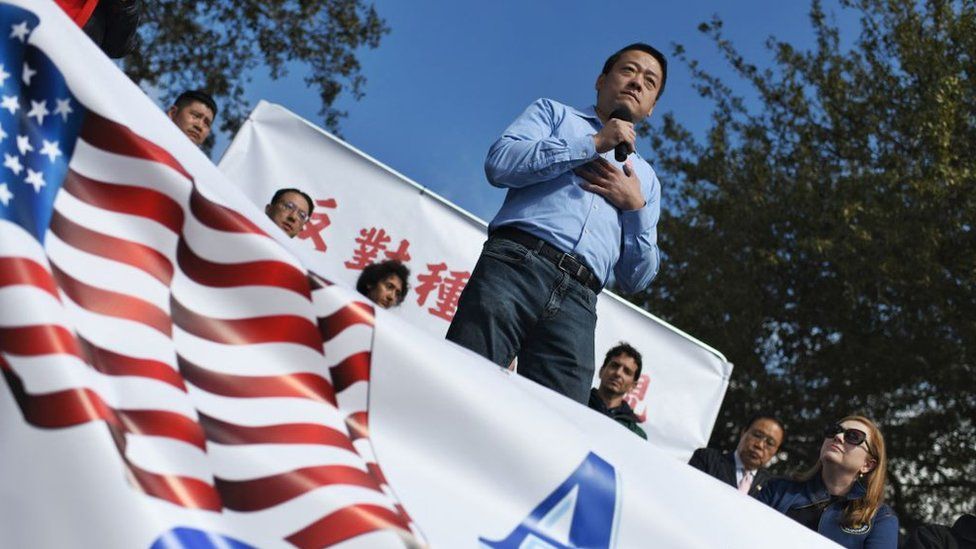A group of Chinese citizens working and living in Florida is challenging a new law that bans them from buying property in the state.
The American Civil Liberties Union, a civil rights group representing the plaintiffs, said the law is unconstitutional and discriminatory.
The ban would also impact Chinese Americans, and people of Asian descent, the suit says.
Proponents of the bill have argued it will protect US national security.
The Florida governor’s office did not immediately respond to a request for comment.
The lawsuit takes place against the backdrop of strained relations between the US and China, and Republican Governor Ron DeSantis’ soon to be launched presidential bid.
“Florida’s discriminatory property law is unfair, unjustified, and unconstitutional,” Ashley Gorski, senior staff attorney at the ACLU, said in a statement. “Everyone in the United States is entitled to equal protection under our laws, including citizens of other countries.”
The plaintiffs, represented by ACLU and two other groups, say that in practice, Florida’s law will lead to broad discrimination against these communities in the state, including everyday residents and American citizens.
The legislation applies to owning property within 10 miles of a “critical infrastructure facility” and also bars foreign entities from Russia, Iran, North Korea, Cuba, Venezuela, and Syria.
Those zones include airports, military installations, spaceports, refineries, electrical power plants, water and waste treatment facilities, or seaports. Foreign entities are also banned from purchasing agricultural land.
The legislation focuses heavily on restricting sales to Chinese nationals and entities.
It makes it a felony for Chinese citizens or companies to buy property, or for a person or company to knowingly sell to them. For citizens of the other countries on the list, the penalty is a misdemeanour.
Both Republicans and Democrats have expressed concern over the years about the potential for state-sponsored interference from China, Iran, and Russia in key American infrastructure, such as its power grid or voting systems.
Florida is also not the only state to take such action. Montana’s Republican governor signed a measure in early May restricting Chinese businesses and nationals from purchasing agricultural land or property near certain critical infrastructure. Texas is also considering a bill along these lines.
Mr DeSantis, a Republican, signed SB 264 into law on 8 May, and it is scheduled to take effect on 1 July.
In a press conference on 8 May, Mr DeSantis said the law was part of an effort “to stop the influence of the Chinese Communist party”.
The United States has a long history of discriminatory housing policies – both official and unofficial. Multiple civil rights cases have been waged to end housing discrimination based on race, sex, ideology, or orientation.
During the 20th century, a practice known as “redlining” excluded many communities of colour, especially Black residents, from owning property in certain districts.
Asian Americans have also borne the burden of such policies throughout US history. Legal representatives referenced these moments specifically in arguing that the law would hurt Chinese immigrants.
“Xenophobic policies and rhetoric toward China stoke racial bias,” said Bethany Li, legal director of the Asian American Legal Defense and Education Fund, one of the groups representing the plaintiffs.
The law has left many in the state’s Asian community uncertain and fearful of their futures.
Ahead of the bill’s passage, Chinese Americans protested at the Florida state capitol against the new restrictions.
One student, Victoria Li, told the Tallahassee Democrat she was concerned the “bill will affect people like me who want to own a home.
“We’re scared, we’re terrified,” she said. “That’s what we came here for. We have the American Dream.”
Source : BBC


